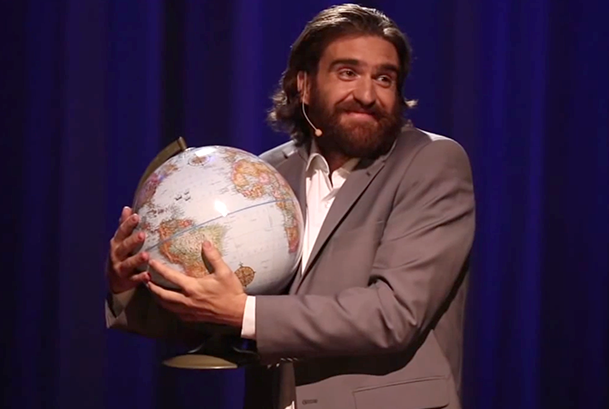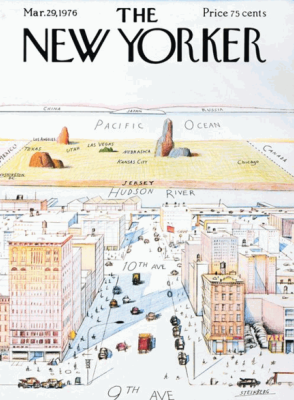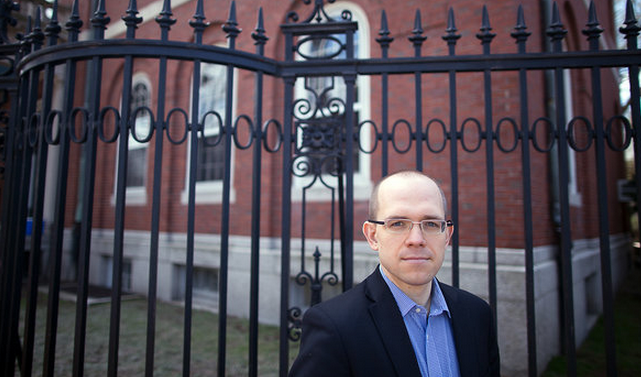The Narcissistic Narcotic of the "Tech Intellectuals"
Back in the Age of Apollo, a robust critique of technology said it served as an opiate for intellectuals. A half century later, we are dulled, lulled, and anesthetized by today's technology intellectuals. Twitter spats, Facebook feuds, and dueling op-eds between these pundits - many self-created and anointed - entertain us while lining their pockets. The result is a deadened and increasingly shallow discourse about the place and power of technology in society. Who are these quasi-academic anesthesiologists? A great article by Henry Farrell, a professor of political science at George Washington University, helped me understand this community better. In the Fall 2013 issue of Democracy, Farrell published a fantastic critique of cyber-pundits called "The Tech Intellectuals." The title grabbed my attention; the ideas kept me reading.The figures Farrell excoriates are "professional argument-crafters." Unlike the public intellectuals of the 1950s who labored despite little pay and small audiences, today's tech intellectuals, their reach extended by You Tube and Twitter, reach millions. Almost all are men. Almost all express bland conformist political views that extol the value of free markets and small government. Their political convictions, such as they are, "reflect their experiences and their self-interest." The result is "drab uniformity" and "narrowness of vision." It's like that famous New Yorker cover showing the world as seen from Manhattan.
Who are these quasi-academic anesthesiologists? A great article by Henry Farrell, a professor of political science at George Washington University, helped me understand this community better. In the Fall 2013 issue of Democracy, Farrell published a fantastic critique of cyber-pundits called "The Tech Intellectuals." The title grabbed my attention; the ideas kept me reading.The figures Farrell excoriates are "professional argument-crafters." Unlike the public intellectuals of the 1950s who labored despite little pay and small audiences, today's tech intellectuals, their reach extended by You Tube and Twitter, reach millions. Almost all are men. Almost all express bland conformist political views that extol the value of free markets and small government. Their political convictions, such as they are, "reflect their experiences and their self-interest." The result is "drab uniformity" and "narrowness of vision." It's like that famous New Yorker cover showing the world as seen from Manhattan. However, tech intellectuals offer a view from Sand Hill Road, not 9th Avenue.I won't summarize Farrell's article - it's well worth a read on its own. But two points his in essay disturbed me. We often hear about the "marketplace of ideas." But the tech intellectuals have taken this literally to the bank. Their aggressive comments and manufactured tiffs with one another have created a self-licking ice cream cone - "troll and response" Farrell calls it - of controversy and attention. More attention, manufactured via Twitter baiting and dueling op-eds, generates more Internet traffic, high speaker fees, and lucrative book contracts. These people are not some 21st century version of Lewis Mumford; they are the tech-savvy dopplegangers of Dominick Dunne. As Farrell noted in an email, such are "the subtle incentives of the intellectual economy. If you want to get onto the TED circuit, you are best advised not to be too hostile to business."
However, tech intellectuals offer a view from Sand Hill Road, not 9th Avenue.I won't summarize Farrell's article - it's well worth a read on its own. But two points his in essay disturbed me. We often hear about the "marketplace of ideas." But the tech intellectuals have taken this literally to the bank. Their aggressive comments and manufactured tiffs with one another have created a self-licking ice cream cone - "troll and response" Farrell calls it - of controversy and attention. More attention, manufactured via Twitter baiting and dueling op-eds, generates more Internet traffic, high speaker fees, and lucrative book contracts. These people are not some 21st century version of Lewis Mumford; they are the tech-savvy dopplegangers of Dominick Dunne. As Farrell noted in an email, such are "the subtle incentives of the intellectual economy. If you want to get onto the TED circuit, you are best advised not to be too hostile to business."
Evgeny Morozov is a particularly egregious case. I have agreed with and enjoyed some of his pieces. (I favorably cited his critique of "solutionism" in a previous post). But a recent profile of him in The New York Times cast his thought processes in a new light. The article described him as a deep thinker about technology, a voice countering the cyber-utopians. OK, fine. It went on to describe his new venture - getting a Ph.D. in the history of science at Harvard. Alright, let the blooms flower. The house of history has many rooms.
But the kicker in this piece of puffery (tellingly included in the NYT's Arts section, not the tech-heavy Business) involved Morozov's future plans. ((Follow-up note, October 2014 - although originally appearing in the Arts section, the NYT later filed its profile under "Media and Advertising"...go figure.)) Although just a first year grad student - a time typically spent learning the historian's craft, reading canonical works in the field, and so forth - he has already planned his dissertation as a book to be published by Farrar, Straus & Giroux. ((Described as a "history of the Internet intellectual movements like cybernetics"...whatever this means. I can only hope the NYT reporter got his facts wrong because cybernetics sure wasn't an Internet intellectual movement.))
NO ONE starts graduate school with their dissertation so well developed already, its conclusions known, such that one seeks a book contract. This is antithetical to what getting a doctorate is all about. It's not what real public intellectuals do. Explanations? Perhaps the publisher, eager to take advantage of Morozov's market value as a tech intellectual, wanted first dibs. Maybe a graduate degree is just further gloss on Morozov's public shine as a (sometimes) deep thinker about technology, the Internet, and the digital world. In any case, a Harvard patina - assuming he finishes - will no doubt add to his stature, Twitter followers, and lecture fees.
I interrogate Morozov's motives and conviction not out of personal animus - I don't know him while some of his imagined Cambridge advisers are my colleagues - but to make a larger critique of the profession he appears eager to enter - namely, mine.
Farrell's essay notes that today's "tech intellectuals" typically work outside of the academy. Indeed, "the professoriate is being left behind" while "traditional academic disciplines...have a hard time keeping up." This is a tragic abdication. Why are we ceding valuable intellectual terrain to self-proclaimed intellectuals with their low-calorie ideas and overheated internal debates? Our profession helped create this vacuum. The Morozovs have simply moved in and put up their feet...
At the recent annual meeting of the Society for the History of Technology, many of my colleagues expressed concerns about our field's future. Part of this has to do with broader questioning about the legitimacy and value of the humanities. There were special panels on "opportunities and challenges" and how we could better engage with policy makers and publics "in the real world" (the phrase itself is pejorative, its use signifying deeper issues of self-identity and esteem...the world in which I research, teach, administer seems pretty real to me).
We are failing to make ourselves relevant. Where, for example, are the op-ed pieces and blog posts by historians of technology about Massive, Open On-Line Courses? MOOCs are part of a long, failed tradition of using technology to implement distance learning. This is something about which we ought to speak out - as scholars and as a community sure to be affected. Look further and one sees debates about drones, privacy, surveillance, cyberwarfare, regulation of emerging technologies, et al.. Historians have expertise to offer on all of these topics and more. There's hope. But we have to stop nodding off in the tech intellectuals' opium den.